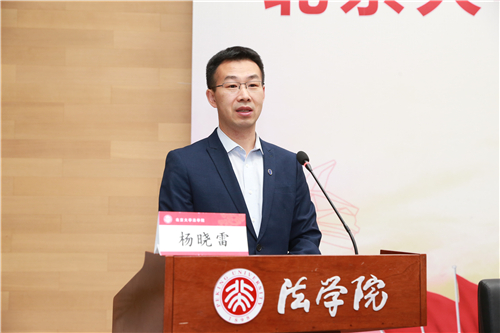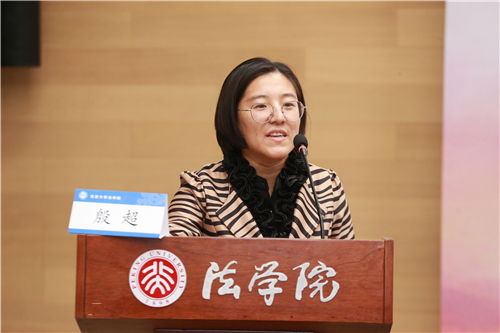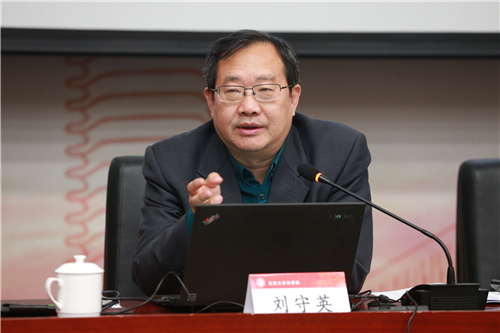Peking University Collective Land System Special Seminar Successfully Held
Date:2020-01-06
From November 9th to 10th, 2019, the Peking University collective land system seminar was successfully held in the lecture hall of (Leo) Koguan Building. In this seminar, Prof. Liu Shouying, a teacher at the School of Economics of PKULS, Gao Shengping, a professor at Renmin from Renmin University of China. Prof. Chang Pengao, a teacher of PKULS, and other well-known scholars from the theoretical circles.
PKULS Deputy Dean Yang Xiaolei attended the opening ceremony and delivered a speech. The ceremony was presided over by Zhang Yu, the assistant director of the Domestic Cooperation Office of the School of Law and the head of the seminar.

Deputy Dean Yang Xiaolei first extended a sincere welcome to the students from all over the country. He said that under the requirements of the era of knowledge economy and lifelong learning, legal persons should speed up the learning and updating of knowledge, grasp the refined interpretation of policies and policies, and improve the ability to solve practical problems. This seminar classifies the needs of previous students, innovates teaching models, takes the collective land system as the starting point, and focuses on teacher-student exchanges and discussions in multiple dimensions. It not only clarifies the application boundary and connotation of the collective land system, but also enriches practice The problem-solving ideas and vision ensure that the entire curriculum design is more penetrating.

Later, Mr. Yin Chao, a lawyer from Beijing Bailang Law Firm, spoke as a student representative. She said that at the PKULS, the transfer of knowledge and the realization of thoughts are like the flowing water to infiltrate the soul, and the sound of the times is deafening. In the era of the land reform era, legal persons from all over the country met at the shore of the unknown lake, with a lot of confusion and insights on collective land practices. With the original intention of asking, listening to the experts' advice, I believe that at the end of the course, every One student will return with a full load.
The two-day project is short in duration, but the course is compact and informative. The law school invited a number of experts from the theoretical and practical circles to elaborately outline the macro blueprint of the rural collective land system for the students through five carefully designed courses, and pass the collective land from the details of regulations, cases, and data. The spirit of system reform. Prof. Liu Shouying, Prof. Gao Shengping, and Prof. Chang Pengao arranged the horizontal knowledge from the "three plots" of business construction land, house site, and contracted land respectively; Vice President Yan Hongsheng explained the collective with rich practical trial experience The issue of land acquisition compensation. After the course, the students fully communicated with the teachers on practical issues, and the students also formed a deep friendship.




The land system is a fundamental system related to national economy and people's livelihood. In the context of the implementation of the national strategy of ecological civilization reform, the use of land and space planning to lead the land use system is not only an important legislative change in the amendment of the Land Management Law, but also a new perspective and starting point for all sectors to understand the land system. Under the macro objectives of expanding land power and improving utilization efficiency, the reform of land contractual management rights, collective business construction land use rights, and homestead land use rights have been gradually promoted, and the agricultural land acquisition system has been continuously improved, all of which have achieved reform results at different stages. Under the purport of the reform that stimulates land potential and manifests the property attributes of land, how to adjust the inherent concepts, inject reform thinking, re-examine the practice inertia, and correctly apply the new law norms is a theoretical issue that needs urgent attention, and it also brings new Challenge. The successful holding of the special seminar on collective land system will undoubtedly become an important support and help for front-line practitioners to practice the spirit of land reform.

Translated by Rosie
Edited by Rosie



